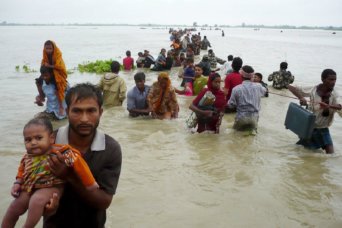- About
- Topics
- Picks
- Audio
- Story
- In-Depth
- Opinion
- News
- Donate
-
Signup for our newsletterOur Editors' Best Picks.Send
Read, Debate: Engage.
The recently announced European Consensus on Development is an EU measure that aims to achieve the United Nations' sustainable development targets, in a commitment to the 2030 Agenda. However, many NGOs and MEPs from across the political spectrum fear that much of this aid will be, once more, simply used to control migration flows.
Rather than focusing on pressing concerns such as malnutrition, poverty and human rights violations, this new framework for development directs European aid money, largely to the area of border control. The aim is to control and reduce migration from Africa, avoiding the tragedy of the perilous Mediterranean crossings. In these times of anti-immigration sentiment and heightened security concerns this strategy is a further step taken in accepting the Europe’s right-wing nationalist mentality of ‘closed doors’ towards migrants.
Therefore, the concern is that although the EU (still the world’s largest development aid donor) claim their goals are eradicating poverty, fighting hunger and preserving natural resources, their funds will be used to train troops for border control.
Created just over a year ago, the European Emergency Trust Fund for Africa has also been criticised for channelling money that should be used to fight poverty, purchase medicines and study books for other purposes. Instead the EU has been used these funds to purchase military equipment, train police, and set up migrant detention centres and systems to facilitate repatriation and expulsions in African countries.
